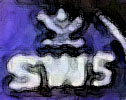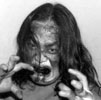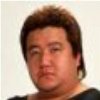
|
||||
|---|---|---|---|---|

Main Roster SWS History When 1990 began, there were two large wrestling companies in Japan: All Japan and New Japan. FMW was getting larger, but was no where near the popularity it would obtain later, and while there were other promotions none were considered a serious threat to knock New Japan or All Japan off their throne. That would change in the spring, when a new promotion was created with the intention of doing just that: Super World Sports. Even though the promotion would ultimately fail, much fanfare surrounded not only its creation but also their working agreement with the WWF that brought superstars such as Hulk Hogan and Randy Savage to Japan. Super World Sports was created by Megane Super, a large eyeglasses company in Japan. Megane Super had decided to go into the wrasslin' business and quickly raided All Japan and New Japan looking for wrestlers that were willing to jump to their new promotion for the right price. SWS's biggest coup came on April 26th, 1990 when they would sign "Mr. Puroresu" Genichiro Tenryu away from All Japan. This infuriated Giant Baba so much that he vowed that Tenryu would never again wrestle for All Japan, a promise that he kept even after Tenryu became a free agent after SWS's collapse. Tenryu wasn't the only jumper however, as Hiromichi Fuyuki, Shunji Takano, Shin'ichi Nakano, Tatsumi Kitahara, Masao Orihara, George Takano, and Naoki Sano also joined the new promotion. SWS was already under fire from newspapers and fans, as they were considered "money puroresu," meaning a promotion that had no heart but was only about the money (credit to Great Hisa for the term). Already with a negative perception due to being about money and not about wrestling spirit, the promotion would have their first card on October 9th, 1990. Soon after that, SWS would sign an exclusive working agreement with the WWF. The agreement would allow many WWF Superstars to wrestle for SWS over the next year, including (but not limited to) Hulk Hogan, Randy Savage, Ted DiBiase, Greg Valentine, Bret Hart, Earthquake, Curt Hennig, Ultimate Warrior, Sgt. Slaughter, and many more. SWS would also get to wrestle for the WWF, as at WrestleMania VII Koji Kitao and Genichiro Tenryu defeated Demolition in front of 15,000 fans in Los Angeles. Even though they had paired themselves with the WWF and had signed many talented wrestlers, SWS's lack of heart would ultimately lead to their downfall. While the public might have eventually warmed up to SWS if they had proven that were about more then just money, SWS did the opposite when Megane Super pulled the plug after the promotion failed to make money in a short period. Instead of building up young wrestlers and forming an identity, SWS consisted of only pre-established stars battling each other, which is something that the fans of puroresu as a whole were simply not interested in seeing. On June 19th, 1992 the promotion would close, less then two years after the promotion's first card. Super World Sports did have a few of their own titles, but they were never the focus of the promotion. Naoki Sano won the SWS Jr. Heavyweight Championship on December 12th, 1991, but never lost it before the promotion went under. The SWS Heavyweight Tag Team Championship was first won by Yoshiaki Yatsu and King Haku in 1992 and was also won by two other teams, but like the Jr. Heavyweight Championship was never the focus of the show. The promotion had no World Heavyweight Championship. What went wrong with SWS? As I mentioned, they started off wrong as the early perception was the the promotion only cared about making money and raided other promotions instead of creating their own stars like All Japan and New Japan did. Obviously the other puroresu promotions didn't like SWS and thus refused to work with them. Most promotions have growing pains, but Megane Super had no patience, wanting quick profits. Thus the plug was pulled and SWS will always be remembered in a negative light since it did little positive for puroresu as a whole. Tenryu was not allowed back into All Japan, and would form WAR after SWS's downfall. Some wrestlers would join him in WAR, while others would join Yatsu's new promotion Social Pro-Wrestling Federation (SPWF) or the Takano Brother's Pro Wrestling Crusaders. Tenryu would finally rejoin All Japan once again in 2000, well after Giant Baba's death, as Baba went to his grave remembering his former star that had stabbed him in the back. A short lived promotion, SWS did get help from the WWF, which helped lead to New Japan getting an agreement with WCW. This might be the only positive effect of SWS, as WCW and New Japan would be partners for the next 10 years. Still, SWS was one of the very few "money puroresu" promotions in puroresu history, and it's failing shows that wrestling in Japan is about more then just money. |
||||
|















